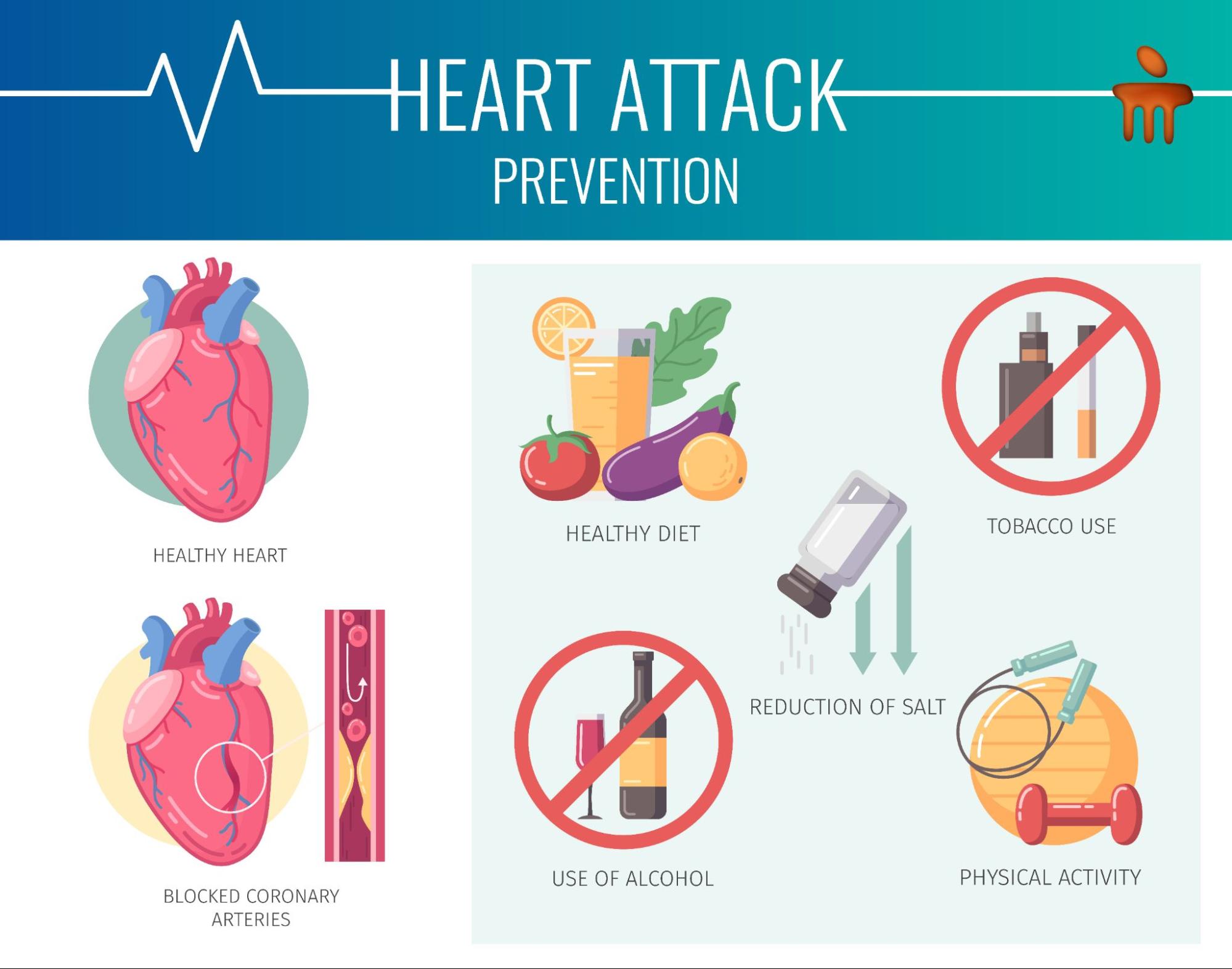
Even though one may not give it much thought throughout the day, their heart is constantly working. The heart is the most significant muscle in the body, as it is responsible for transporting blood and oxygen to all of the organs. Major problems with the lining of the arteries may develop when our heart isn't provided the care it needs, which leads to the formation of plaque. Heart attacks and artery blood flow obstructions are caused by plaque. An individual may be able to avoid or manage heart problems if they are aware of their lifestyle-related activities and the conditions that cause them. Amazingly, the heart can function so well for so long, for so many individuals, given its constant workload. However, it can also fail due to factors such as a poor diet, inactivity, smoking, illness, unfavourable genes, and more. On this World Heart Day, let's remember that our heart, this tireless hero, deserves our attention and care. A healthier heart is a happier life, and it all begins with the choices we make.
Heart health
In the hustle and bustle of our daily lives, we often forget the silent hero that keeps us going - our heart. This unassuming muscle quietly works day in and day out, ensuring that oxygen-rich blood flows through our body's intricate network of arteries. Yet, the heart is not invincible, and it demands our attention and care. Neglecting its needs can lead to the formation of plaque, potentially causing heart attacks and obstructed blood flow in our arteries. It's astonishing how resilient the heart can be, but it's not immune to the pitfalls of a poor diet, sedentary lifestyle, smoking, illness, and even genetics. Fortunately, we have the power to take charge of our heart health. By adopting a heart-healthy lifestyle early on, we can dodge the risks associated with high cholesterol, high blood pressure, diabetes, smoking, obesity, and poor dietary choices. Age and family history may play a role, but we can defy the odds with proactive steps. Hence, it is recommended to make mindful choices - from nutritious eating to staying active, quitting smoking, managing stress, and maintaining a healthy weight. Our hearts are the compasses of our lives. We should ensure they lead us towards long and vibrant journeys. Listen to Your Heart!
Visit our heart hospital to learn more about heart health such as how to maintain normal heart rate and many more.

Why is Heart Health Important?
Heart health is crucial because a healthy heart is the cornerstone of overall well-being. It's responsible for pumping oxygen and nutrients throughout the body, supporting the functioning of every organ and system. Maintaining heart health reduces the risk of heart disease, heart attacks, and other cardiovascular conditions, which remain the leading causes of death worldwide. By prioritizing heart health through a balanced diet, regular exercise, and stress management, we can enhance our quality of life, improve longevity, and reduce the burden on healthcare systems, ultimately allowing us to enjoy a more active and fulfilling life.
Cardiac Arrest v/s Cardiac Attack
On World Heart Day, it is important to understand the difference between cardiac arrest and heart attack. A heart attack results from a blocked blood vessel, while cardiac arrest occurs when the heart suddenly stops beating. Both are life-threatening, but knowing the distinction can save lives through prompt action and awareness.
Please watch the video below to learn from the experts:
Heart Attacks in Young People
Recently, more young people are having heart attacks after intense workouts at the gym. Many young folks are hitting the gym hard to get in shape, but sometimes they overdo it and forget to consider their heart's health. Doing very tough exercises and lifting heavy weights can be risky, especially if they are not used to it. This has led to heart attack incidents during gym sessions. Other factors like sudden rises in blood pressure and not knowing about heart problems beforehand are also causing issues. Also, the pandemic has made things worse because many young people have become more inactive and stressed, and they are not eating well. So, it is important for young people to get regular check-ups, live a balanced life, and get advice from doctors to keep their hearts and bodies healthy.
Surgeries
Surgery is often a critical intervention for various heart-related disorders. Procedures like coronary artery bypass grafting (CABG) can restore blood flow to the heart by bypassing blocked arteries. Valve surgeries repair or replace damaged heart valves, ensuring proper blood flow through the heart. In cases of congenital heart defects, surgical corrections can be life-saving for both children and adults. Heart transplant surgeries are performed when the heart's function becomes severely compromised. Additionally, minimally invasive techniques such as angioplasty have revolutionized heart surgery, reducing recovery times and improving outcomes. Surgical interventions play a vital role in managing heart-related disorders, offering hope and extended quality of life to countless individuals.
Consult a cardiologist if you need treatment and care for heart-related issues.
Conclusion
Our hearts work hard for us, but we need to take care of them. Heart attacks and cardiac arrests are different but serious heart problems. On World Heart Day, remember that a healthy heart means a happier life. We can achieve this by making good choices, like eating healthy food, staying active, managing stress, and maintaining a healthy weight. Let us take care of our hearts, so they can keep guiding us through long and joyful journeys.





















 5 Min Read
5 Min Read













